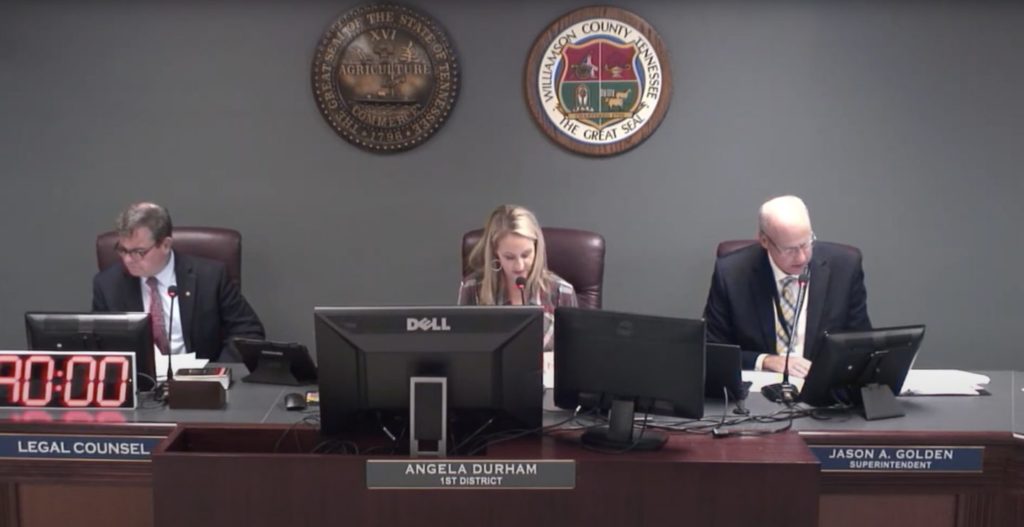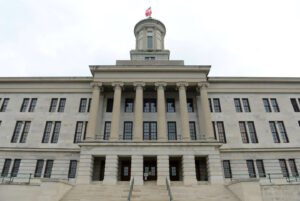Local taxpayers without children in school can’t formally complain about instructional material, decides Tennessee school board
A Tennessee school board is barring local taxpayers from formally raising concerns over textbooks and materials in the classroom unless they have a child in the district.
Williamson County Public…

A Tennessee school board is barring local taxpayers from formally raising concerns over textbooks and materials in the classroom unless they have a child in the district.
Williamson County Public Schools, one of Tennessee’s largest public school districts with over 40,000 students, recently approved Policy 4.401. It lays out how textbooks and instructional materials are selected and challenged.
But frustrated residents gathered at an Oct. 24 school board meeting to dispute a portion of the new policy which limits who can bring formal complaints about school materials to the school board. And presented with an amendment to address citizen concerns, the board voted against it.
“A complaint about Board approved textbooks, instructional materials and supplementary instructional materials may only be made by a current WCS parent/guardian, employee, or student,” the policy states.
Those opposed to the policy worry the school is censoring the voices of taxpayers and practicing “a closed form of government.”
“Please don’t tell me I’m forced to pay such significant amounts to Williamson County Public Schools and yet have no voice regarding public education,” said Todd Kaestner, who is not a current WCS parent. “Rather than restricting speech, the board and administration should be seeking more input from the public, including parents and taxpayers.”
Other residents expressed similar complaints. “In your proposed policy changes, you establish a process to formally levy complaints against text and library books that purposefully omits a significant portion of the citizens here in Williamson County,” Stephen Hickey said.
Hunter Brown, a concerned WCS grandparent, pointed out that grandparents and many relatives of students would also be excluded from giving input: “The policy eliminates the rights and privileges of a whole host of parties at legitimate interest.”
Following the open comment session, board member Donna Clements acknowledged that while some residents may not have kids in the schools, they “have a heart in the matter.” She proposed an amendment to expand Policy 4.401 to include all Williamson County residents.
Not all board members agreed, however.
“Voting to allow WCS parents or guardians to file a complaint on the textbooks, instructional materials or library books, in my opinion, is not taking the voice away or not considering taxpayers’ opinions,” said Board member Sheila Cleveland. “There are several ways that a non-WCS parent or guardian can voice their concerns.”
Just before the board voted on the amendment, Superintendent Jason Golden added that he did not “recommend” the change, although he respected its concerns.
The amendment failed in an 8-4 vote.
After the meeting, a frustrated attendee took to social media to voice her concerns.
“Williamson County Schools voted tonight to limit who can file complaints on school curriculum/books to only parents of students currently enrolled in the respective school,” Aimeé Fletcher said in a public Facebook post.
“This disregards grandparents, alumni, parents of preschoolers, retired teachers, former board members, property owners, and the taxpayers, each and everyone in the district, who are also stakeholders. Their solution is to direct the rest of us to the teachers and principals and let them deal with it.”



